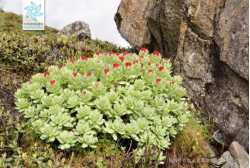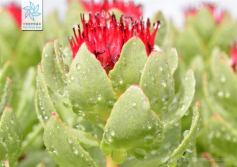- 497
- HENGLU NEWS
Salidroside, also known as Rhodioloside, is a phenolic compound and a natural product derived from the plants of the Rhodiola genus. Rhodiola is a perennial herb that grows in high-altitude, cold environments, with approximately 90 species worldwide, predominantly distributed in the cold regions of the Northern Hemisphere. China is the major source of Rhodiola resources, accounting for about 85% of the global supply. These plants are mainly found in the southwestern, northwestern, northern, central, and northeastern parts of China, with the Tibetan Plateau hosting the most extensive distribution, boasting up to 55 species.


Applications of Rhodiola:
Since its inclusion in the "Pharmacopoeia of the People's Republic of China" in 1977, Rhodiola has been widely used in traditional medicine. Particularly in traditional herbal medicine in China, Rhodiola is utilized to enhance human resilience to stress, combat fatigue, and improve mental well-being. The variety Rhodiola sachalinensis is mentioned in the 2020 edition of the "Pharmacopoeia of the People's Republic of China." Salidroside is one of the important active components of Rhodiola, believed to have multiple benefits, including anti-fatigue, antioxidant, and antidepressant effects. These characteristics have garnered significant attention in modern medicine and health care, leading to its extensive application in pharmaceuticals and health products.

Plants of the Rhodiola genus are rich in various active substances and possess multiple effects, including anti-fatigue, anti-stress, anti-aging, tumor prevention, management of cardiovascular diseases and dementia, as well as enhancing cognitive and physical functions. The market for Rhodiola extract-related products is growing increasingly diverse, providing more options for consumers to meet varying needs and offering greater possibilities for individuals pursuing health and vitality.
References:
[1] Gao, B.B. (2023). Journal of Chinese Medicine. 38(08): 3740-3743.



